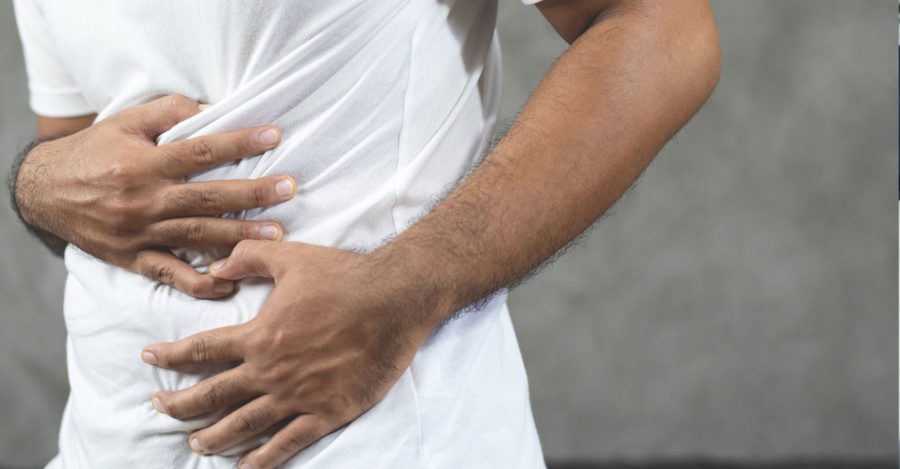Ulcerative Colitis is a lesser known condition however cases are on the rise in America. With over 750,000 Americans now suffering with this condition early detection is paramount to stop it.1 It’s never a bad idea to schedule an appointment. To learn and understand the early warning signs try an online search.
So What Exactly Is Ulcerative Colitis?
Ulcerative Colitis is a condition that affects the digestive tract and is a form of irritable bowel syndrome. It causes inflammation and ulcers inside the digestive tract specifically in the large intestine and rectum.2 This disease develops over time and doesn’t suddenly onset but if left untreated can become life threatening with developments into other health disorders. Whilst there is no exact cure early detection has been proven to be life saving and help patients into long term remission.
Who Is At Risk Of Ulcerative Colitis?
Ulcerative Colitis is still early in its development of research however currently Age is one of the most prominent factors. If you’re aged between 15 to 30 years, or older than 60 years of age this is the most common segments of patients. Another aspect is Ethnicity with people of Ashkenazi Jewish descent being one of the highest recorded of this condition.(3) Family history is another important indicator and if anyone in your family has Ulcerative Colitis your risk goes up a startling 30%.
What Are The Types Of Ulcerative Colitis?
There are multiple types of this disease which are noted by the origin of the disease in your body. The types recorded so far include Ulcerative Proctitis which is the most mildest form, Proctosigmoiditis which happens mostly in the rectum, Left-sided Colitis which affects the left side of the belly, Pancolitis which affects your entire colon and Acute severe ulcerative colitis which is the most rare of this condition. Ulcerative Colitis when left untreated can further develop into other conditions like Bowel related cancers which are extremely life threatening.
What Symptoms Should I Look Out For?
The symptoms of Ulcerative Colitis can vary with the patient and type of this disorder. However depending on the severity of where it occurs and level of inflammation the signs and symptoms may include:
- Rectal Pain
- Sudden Weight Loss
- Fever and Fatigue
- Urgency to Defecate
- Abdominal Pain and Cramping
- Diarrhea (Which may include blood or pus)
- Dehydration
- Joint Pain or Stiffness
How Is Ulcerative Colitis Diagnosed?
If you’re experiencing any of the early signs and symptoms its strongly suggested to seek medical help from a doctor. Your doctor may arrange a series of tests and if any of these come back with positive results than forwarding to a specialist called a gastroenterologist is the most common pathway. The tests involved for screening Ulcerative Colitis include:
- Blood tests – A simple blood test can screen for signs of anaemia which may indicate blood passing through the bowel.
- Imaging tests – A screening of your colon area and rectum using MRI or CT scan.
- Stool samples – Screening your stool can indicate if any signs of infection are occurring.
- Endoscopy – Using a tiny camera whilst you’re anaesthetised can view your colon area for advanced screening protocols.
Are There Treatments Available?
There are multiple treatments available to a patient with this condition depending on its severity. These drugs have worked well for some and not so well for others so its important to consult with a specialist on the best path of action for you. The most common forms of treatment for Ulcerative Colitis include:
- Anti Inflammatory Drugs – Considered one of the first steps in treating this condition anti inflammatory drugs can begin to help reduce inflammation in the colon area. There is a wide range of anti inflammatory drugs available on the market.
- Immune System Suppressors – Because Ulcerative Colitis is caused by the immune system making a mistake in the colon it can often be treated by suppressing this function. There are multiple forms of immune system suppressors including Tofacitinib (Xeljanz), Cyclosporine (Gengraf, Neoral, Sandimmune) and Azathioprine (Azasan, Imuran).
- Surgery – For some advanced stages of this condition surgery may be considered if it has become life threatening. This surgery is quite invasive and involves removing the colon and in many cases it involves a procedure called ileoanal anastomosis (J-pouch) surgery. This is why it is very important to know and understand early warning signs of this condition to detect it early.
Natural Remedies To Offset Signs And Symptoms
If you’re experiencing pain and swelling in this area its always recommended to see a medical professional. There are lifestyle changes you can make to stop this condition from occurring in the beginning which include a healthy diet and exercise with no smoking. Focusing on foods that are high in probiotics, ginseng, Psyllium seed, bromelain (found in pineapple) and turmeric have been noted to help the digestive tract.
Contact A Local Specialist For Testing Now
If you’re experiencing any of the early warning signs then a low cost screening is your best defence against Ulcerative Colitis. Keep your family safe and well informed with routine check ups can safeguard your life and keep you in a healthy state of being. Professionals are available across the entire nation and ready to book in your early detection screening today.
See Signs of Ulcerative Colitis
Reference:




